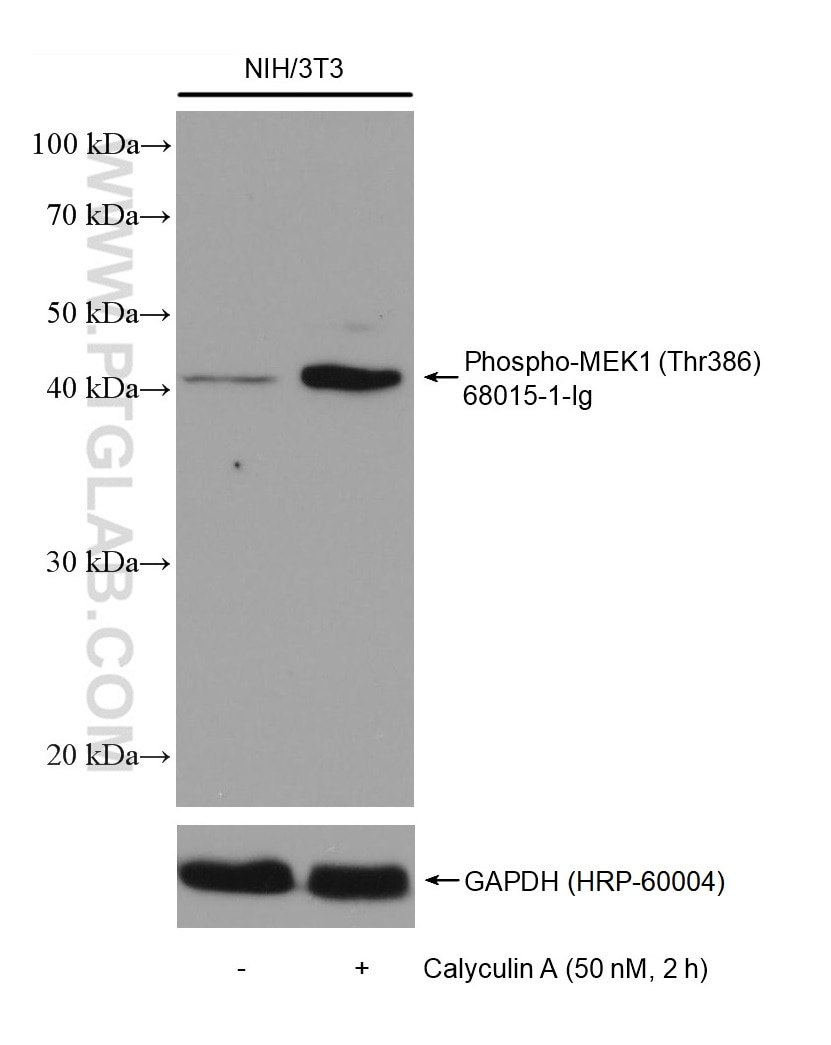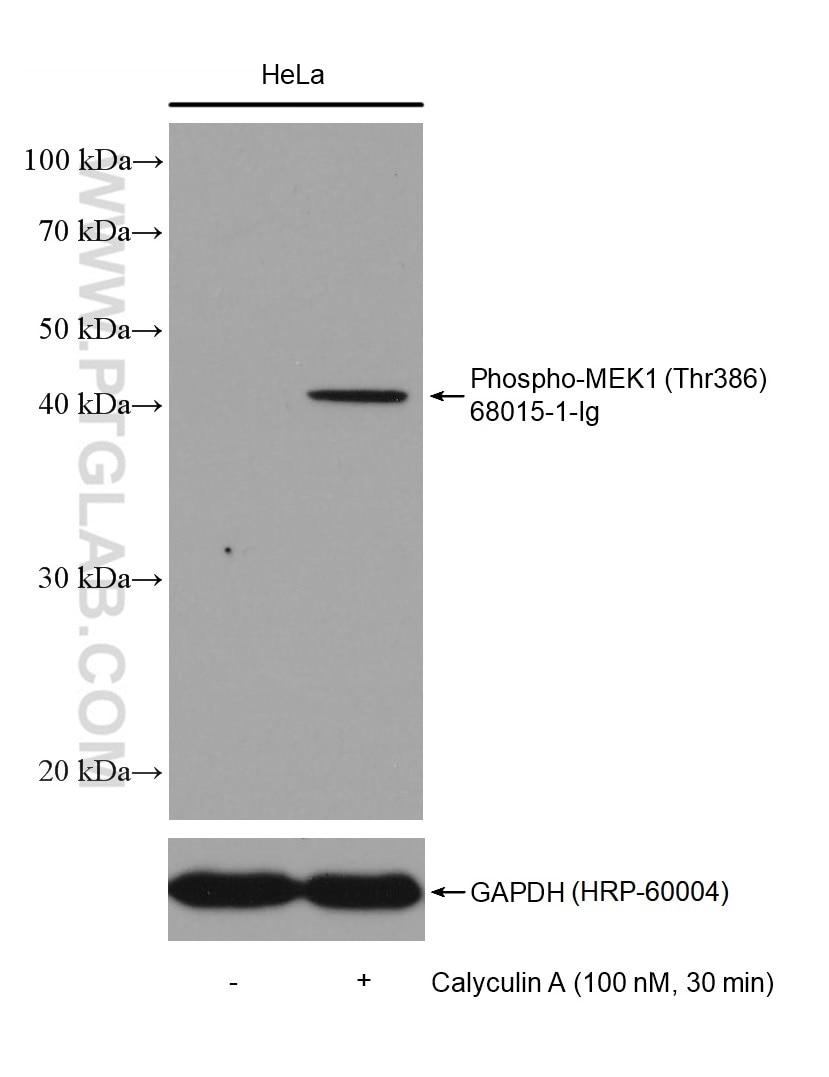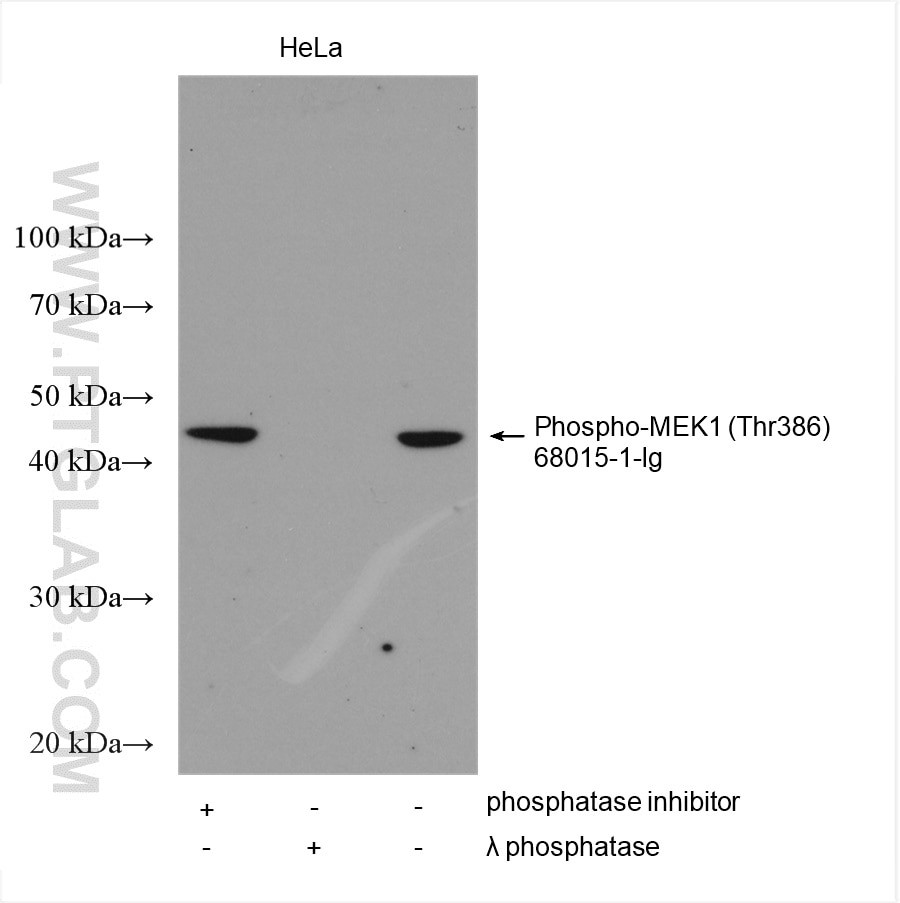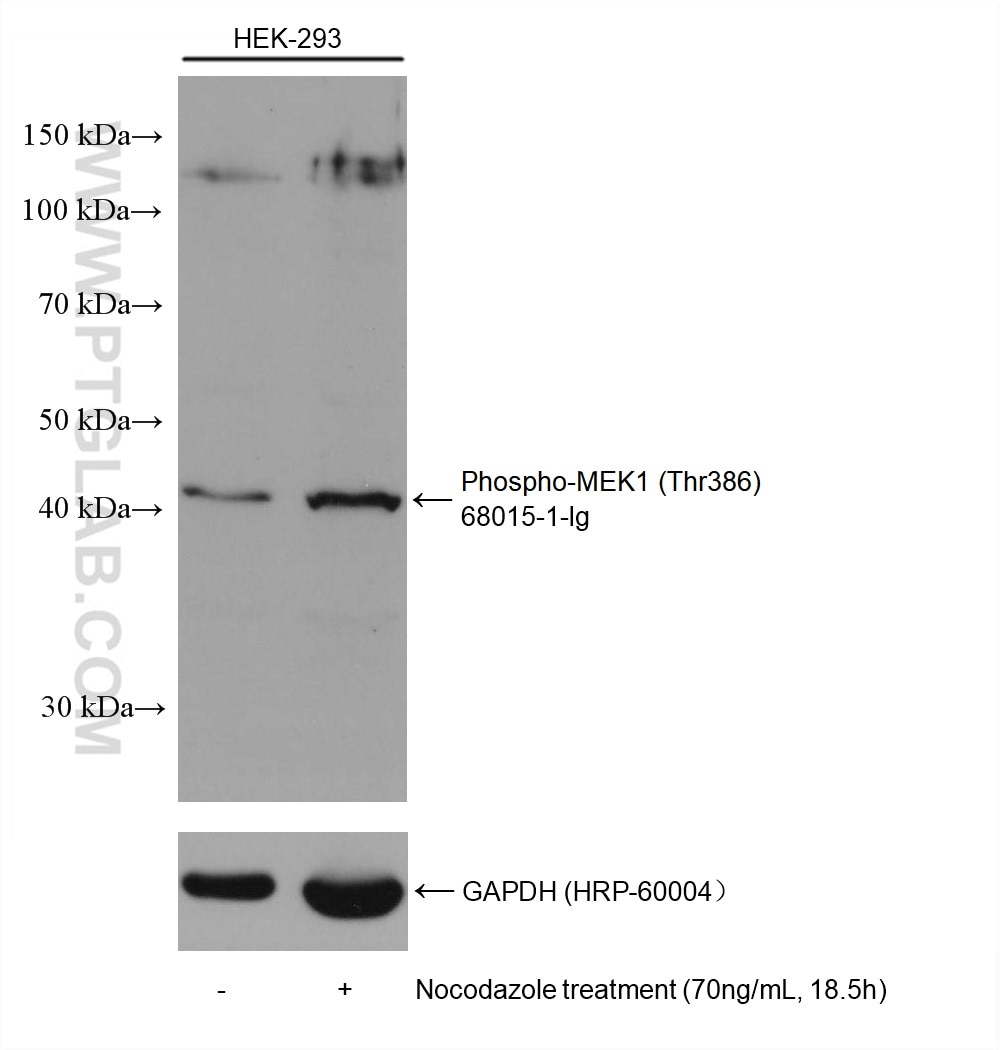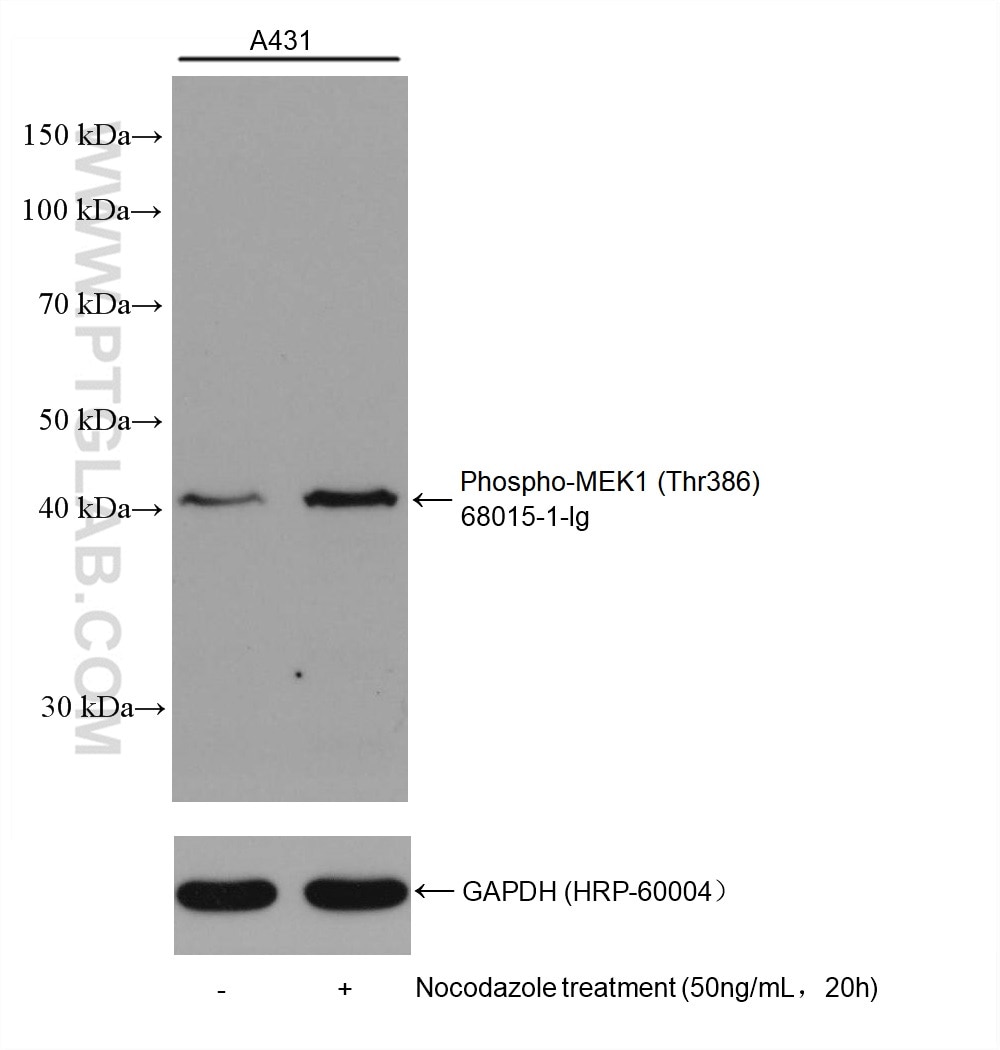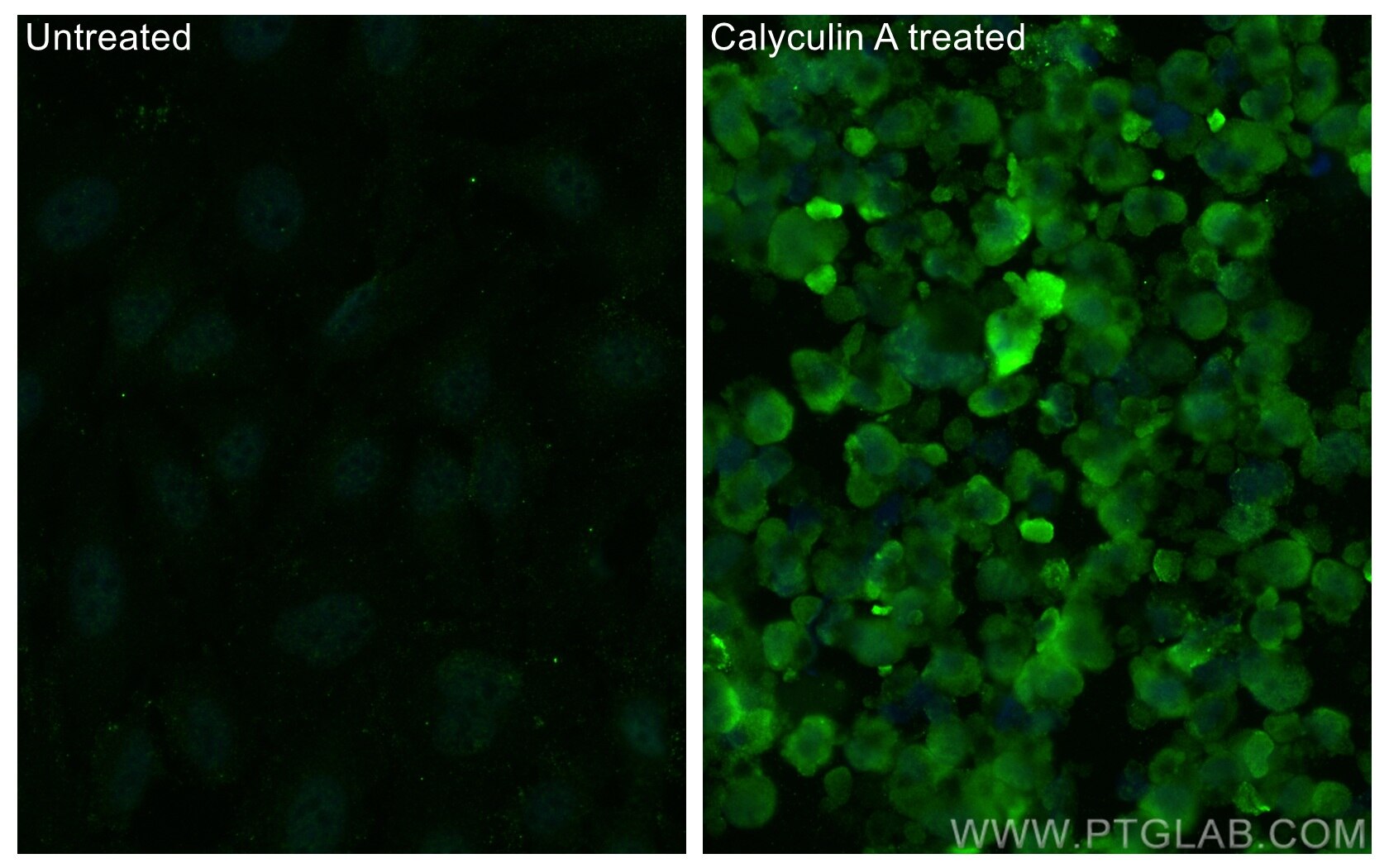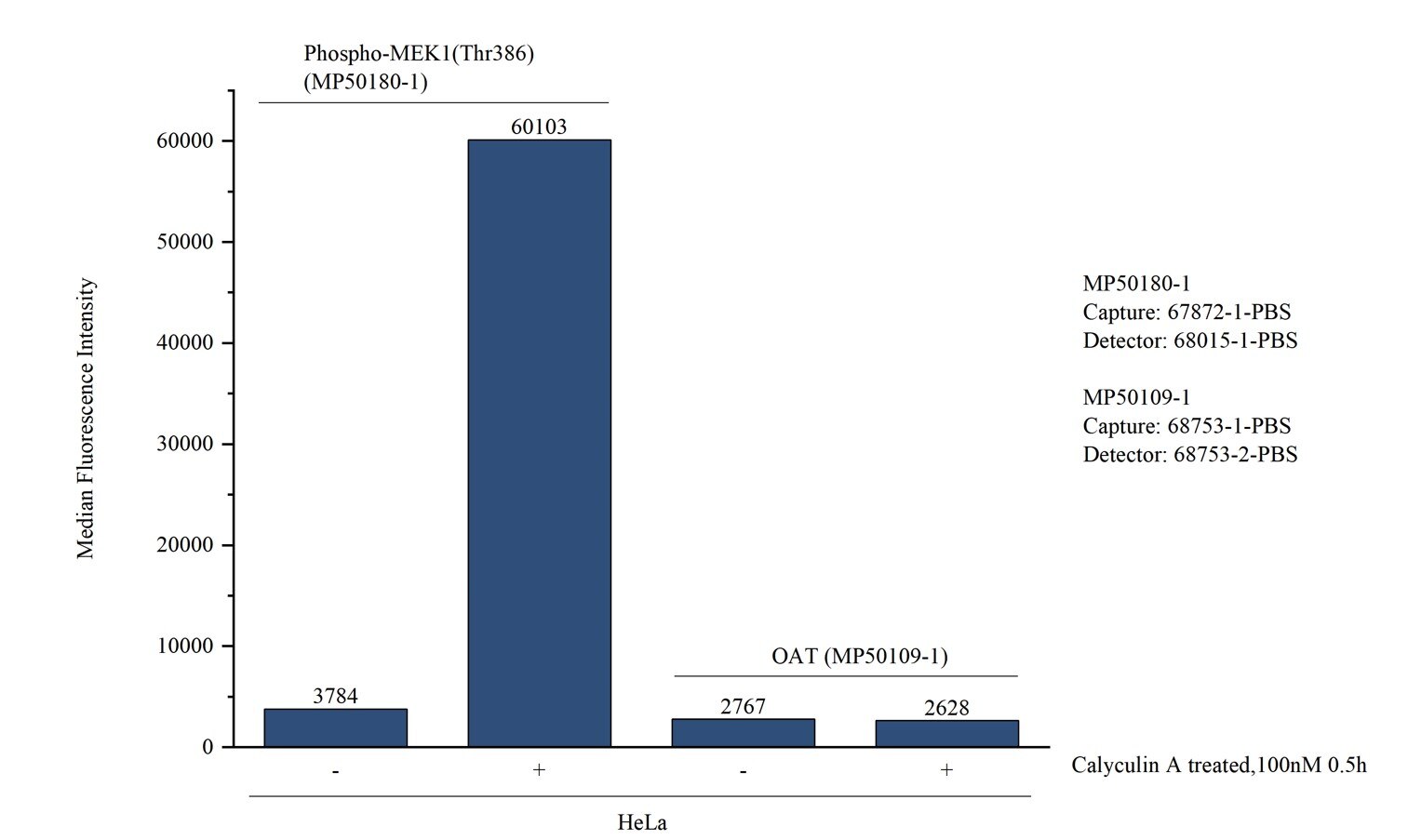Anticorps Monoclonal anti-Phospho-MEK1 (Thr386)
Phospho-MEK1 (Thr386) Monoclonal Antibody for WB, IF/ICC, Cytometric bead array, Indirect ELISA
Hôte / Isotype
Mouse / IgG1
Réactivité testée
Humain, souris
Applications
WB, IF/ICC, Cytometric bead array, Indirect ELISA
Conjugaison
Non conjugué
CloneNo.
1G6A2
N° de cat : 68015-1-PBS
Synonymes
Galerie de données de validation
Informations sur le produit
68015-1-PBS cible Phospho-MEK1 (Thr386) dans les applications de WB, IF/ICC, Cytometric bead array, Indirect ELISA et montre une réactivité avec des échantillons Humain, souris
| Réactivité | Humain, souris |
| Hôte / Isotype | Mouse / IgG1 |
| Clonalité | Monoclonal |
| Type | Anticorps |
| Immunogène | Peptide |
| Nom complet | mitogen-activated protein kinase kinase 1 |
| Masse moléculaire calculée | 43 kDa |
| Poids moléculaire observé | 40-50 kDa |
| Numéro d’acquisition GenBank | BC139729 |
| Symbole du gène | MEK1 |
| Identification du gène (NCBI) | 5604 |
| Conjugaison | Non conjugué |
| Forme | Liquide |
| Méthode de purification | Purification par protéine G |
| Tampon de stockage | PBS only |
| Conditions de stockage | Store at -80°C. 20ul contiennent 0,1% de BSA. |
Informations générales
MAP2K1 encodes MAPK1, also known as MEK1. MEK1 variants can enhance MEK1 expression and ERK1 phosphorylation that together lead to continuous activation of MEK/ERK signaling pathway. MEK1 bind directly to ERK2 through a region in the N terminus of MEK. In addition, a proline-rich (PR) regulatory sequence in MEK is also involved in MEK-ERK association and signal propagation. The coupling between MEK1 and ERK2 is enhanced through phosphorylation on S298 in the MEK1 PR region, whereas phosphorylation on MEK1 T292 releases the complex. MEK1 T292 is a substrate of ERK2, but the site is also phosphorylated at a basal level when ERK2 is inhibited, suggesting several regulators of this site . Although the S298 site in MEK2 has been conserved, it lacks the T292 phosphorylation site, and it is not a substrate of PAK1. (PMID: 31972311, PMID: 17928366, PMID: 22177953)
